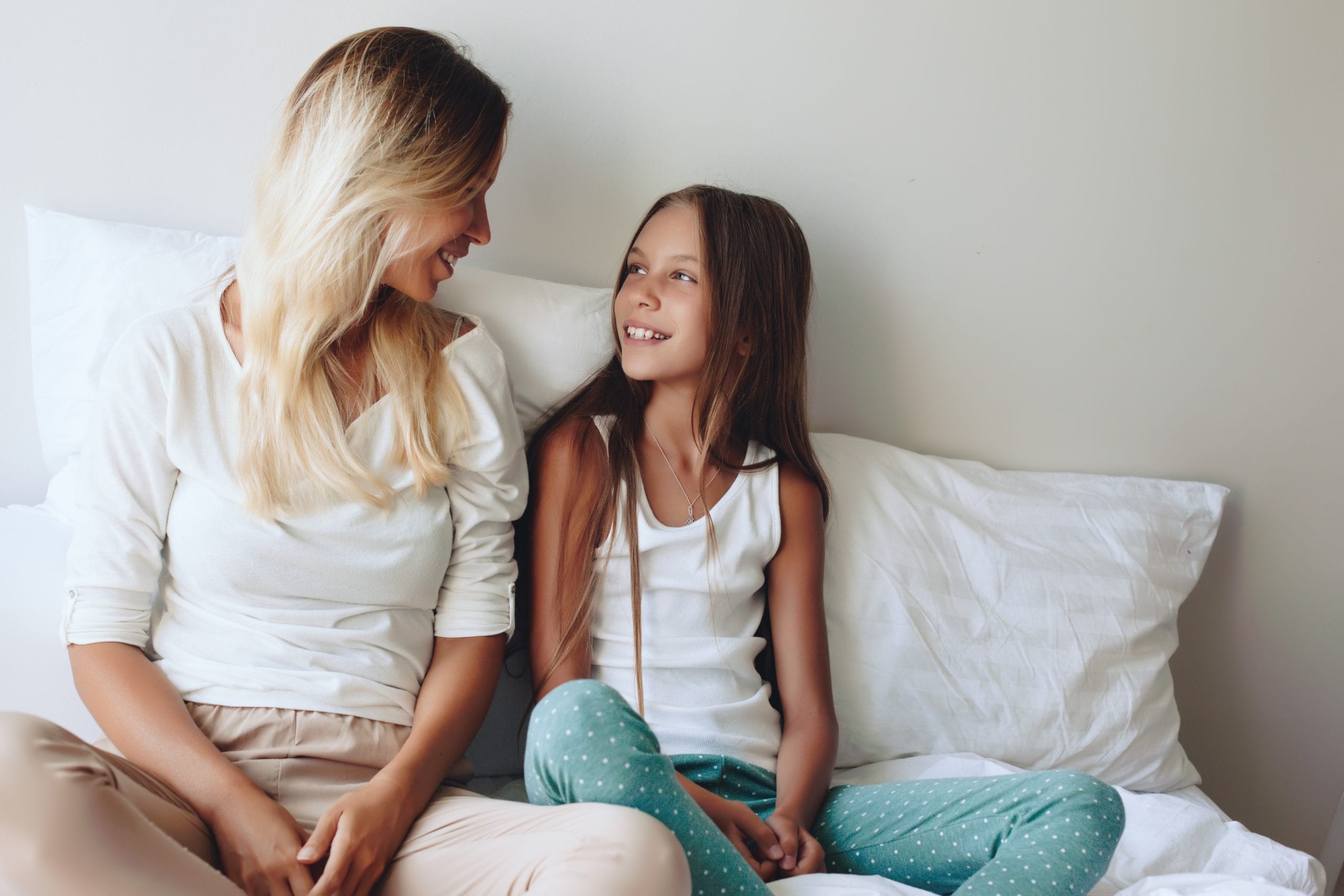How to Have the First Sex Talk
 It’s heavy and it’s daunting. We all dread it, but it’s coming ready or not: the very first sex talk that you’ll have with your children. As much research and soliciting as I have done on this topic, I still can’t say I have a real rock-solid approach except to say that all children are different in their maturity and understanding and that being as truthful as possible is the way to go. This is just part of health and wellness for kids, as awkward a topic it might be.
It’s heavy and it’s daunting. We all dread it, but it’s coming ready or not: the very first sex talk that you’ll have with your children. As much research and soliciting as I have done on this topic, I still can’t say I have a real rock-solid approach except to say that all children are different in their maturity and understanding and that being as truthful as possible is the way to go. This is just part of health and wellness for kids, as awkward a topic it might be.
When to Begin the Sex Talk
Some parents choese to begin the conversation as early as 8 or 9 years old. And others may wait into early preteen years. I think it’s largely dependent on when your child has curiosities, and a safe bet is to approach the topic of sex when he or she shows signs of interest. Sometimes the timing is not in your control, as one mom recounts hilariously.
Deep breath. The questions may come when you least expect them. But you can be ready and have some sort of answer prepared even if it stumbles out of your mouth a little clumsily and awkwardly. The most important thing is that you keep the dialogue open with your kids and encourage them to bring any and all questions to you (and not the other children in the schoolyard).
Finding the Right Words for the Sex Talk
We recently had our first introductory talk about sex. I don’t even think the word S-E-X was actually mentioned, but we covered the majority of the subject. It made me nervous and sweaty, but I tried to stay calm and not get emotional about it. The last thing I want is for my kids to think that it’s a bad subject or that anything is off-limits to discuss in our home. Below are a few helpful tips and ideas from my experience in having this conversation with my daughter. In the meantime, at the very least use anatomically correct language.
Sex Talk Tips and Suggestions
- When asked how babies were actually made, I asked my daughter if she was ready to have an adult conversation. I also told her that I would answer all of her questions but that I wanted her to handle it maturely and not openly discuss it with her friends until their own parents had the opportunity to speak with them. She agreed.
- Beginning the conversation, I briefly discussed the idea of adults being committed to each other and what that means from a responsibility standpoint. I also truly believe that all babies are a miracle, so we talked about how magical it is that cellular division can create human life. That’s my belief, and it was important for me to share that. Then I started to describe that making a baby can happen when two responsible adults make a decision together. (My message: sex is not bad, but it’s for grow-ups. Read more about abstinence below.)
- Then the part about the parts. So after she agrees that she understands the key points above, we talk about how people in loving relationships show affection (hugging, kissing, holding hands). These things are normal and wonderful and not strange or scary. And I just state it like this: Adults who are committed to each other do more than just that level of affection. It’s a sign of love and commitment and more of their body parts touch than just a hug or a kiss. When a man and a woman’s bodies get really close and meet up, there is part of each of them that can connect, which sometimes can start the beginning process of a baby growing.
- You can get a little more in-depth about the actual fertility (eggs and sperm), but that’s largely up to how much information your child can handle on the first go-round.
- Always ask if there are any more questions and remind your child that you are available to talk when more questions arise. Because they will!
- Be as truthful as you can be, in age-appropriate language. We know that kids understand more than we think they do, and there is no point in changing the names of body parts or skirting around what really happens. Just be sure you use language that your child can understand at that time.
No matter what your spiritual, societal, or family beliefs are around abstinence, I believe that we should guide our kids at an early age to understand that sex is a beautiful part of our humanity, but not everyone is ready for it at an early age. I don’t know how I’ll feel when my children are a little older, but I do know that I will choose not to be naïve in approaching the topic of sex when my kids are teens. We guide them as much as we can, but ultimately they will make their own choices. As a mom, I want to keep the dialogue open and be the source of information and guidance for my kids, no matter what their life decisions may be. What tips or ideas do you have about communicating difficult conversations with your own children?
















Awesome advice as always.
Very well written, and informative. I too was a bit nervous about this subject with my son and daughter untill I relised that this subject isn’t a one and done conversation, it’s a continuous age appropriate one. It starts with naming parts as a little one and teaching body autonomy, and develops into such deep conversations with your teen as how to be in a safe dating relationship. In fact, it is the open honest (age appropriate) communication that matters most.